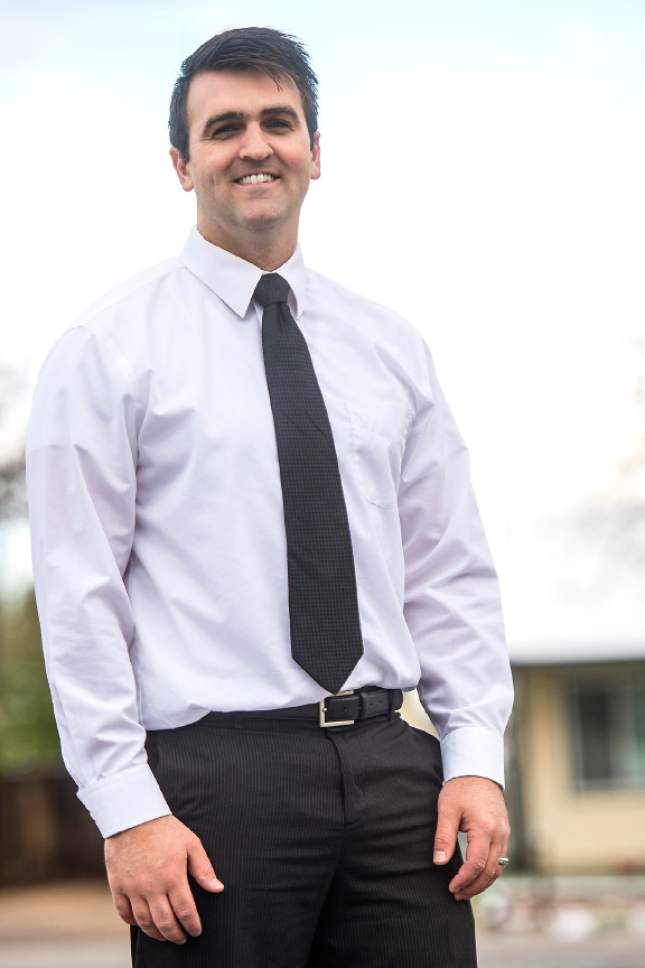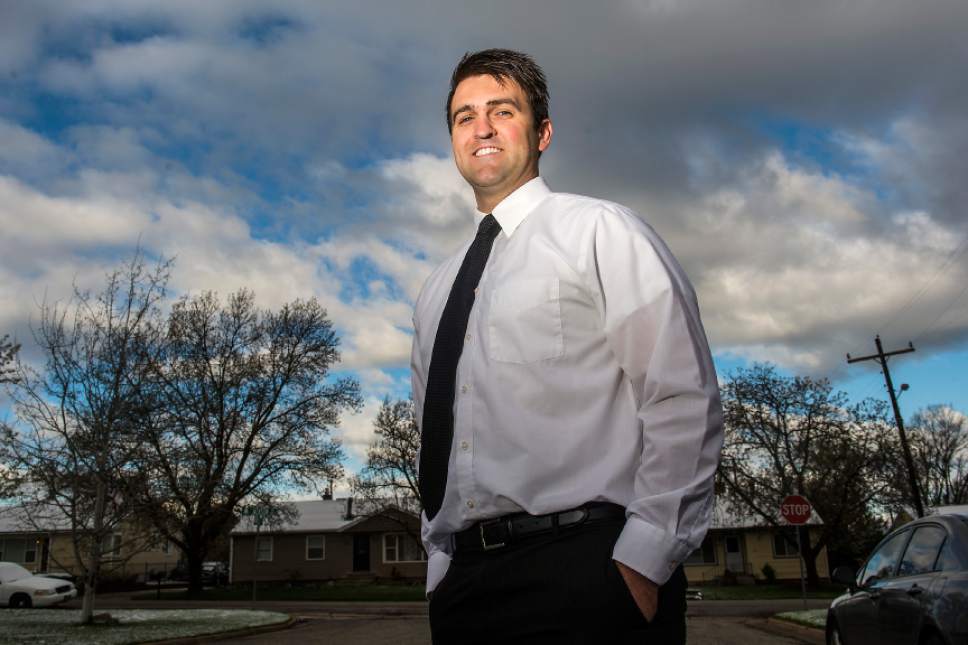This is an archived article that was published on sltrib.com in 2017, and information in the article may be outdated. It is provided only for personal research purposes and may not be reprinted.
Nothing could have prepared Aaron Burgin for the news of his brother's suicide nor the emotions it brought.
People offered well-intended advice and comfort, but Burgin, now 27, found himself filled with deep feelings of guilt, anger, regret and sorrow that couldn't be quelled by such condolences. No one knew what he was going through; they hadn't missed the warning signs and lost a brother.
"For me — and I've heard other say this, too — a lot of people tell you what and what not to feel," said Burgin, who has since become a suicide-prevention advocate. "They'll say, 'It happened forever ago, let it go,' or 'You need to not be angry.'"
A recent Salt Lake Tribune-Hinckley Institute of Politics poll indicates nearly 38 percent of Utahns knew someone who died by suicide, while a higher proportion — 42 percent — said they knew someone who attempted to take their own lives.
The gap was somewhat wider for 18- to 24-year-old Utahns, with 33 percent saying they knew someone who had died by suicide, compared to 58 percent who knew someone who attempted the act.
But the difference narrowed for older Utahns, with 38 percent of respondents aged 55 to 64 saying they knew someone who'd killed themselves and 41 percent knowing someone who'd attempted suicide.
The overall poll, conducted by Dan Jones & Associates, has a margin of error of plus or minus 3.98 percentage points.
The findings parallel statewide statistics on rates of suicides and attempted suicides.
An average of 4,410 Utahns attempt suicide every year, and state data show that 609 Utahns killed themselves in 2015. That number is up from 2014, when 555 Utahns died by suicide.
Social media might contribute to slightly higher rates of young Utahns knowing others who've attempted or died by suicide, speculated Barry Rose, manager at University Neuropsychiatric Institute's Crisis Services. Platforms such as Facebook and Instagram keep them connected, Rose said, making it easier stay in each other's lives.
Knowing someone who has attempted or died by suicide is a traumatic form of loss, said Andrea Hood, suicide prevention coordinator for the Utah Department of Health. Those affected often feel intense emotional reactions and may even consider suicide themselves, Hood said.
Open communication with friends and loved ones, a support system and remembering the person lost as more than how they died can also help the grieving process, she added.
"Being direct with the people in your life supporting you and telling them what they need to know is a good way to cope with this kind of grief," Hood said. "Many people want to give good support but don't know the best ways to do that."
Losing his brother and struggling with his own grief prompted Burgin to start Suicide Sucks, an Ogden-based nonprofit organization offering stories of suicide and suicide loss online in hopes of a life-sustaining message.
"Ultimately, you will experience a wide range of emotions and you need to experience and embrace them and feel them all the way through," he said. "If you don't, you'll never move forward."
Burgin, with the help of volunteers, produces videos, writes articles and social media posts on suicide, and uses marketing and advertising tools such as Google AdWords to better connect those posts with people searching online for suicide-related information.
Although he started the nonprofit in 2015, Burgin only recently began sharing stories through the web. He quit his full-time job in January to focus on the cause.
Burgin said the process has helped him cope with his brother's death while also leading him to be more vulnerable and open in his relationships with loved ones.
"My brother killed himself, and I don't know why," Burgin said.
"What eats at me is that I was 15 months older and we were best friends growing up and he had something bothering him bad enough that he couldn't talk to me," he said. "What I regret most was that I wasn't close enough to let him talk to me about real issues.
"I wish people could understand how important it is to have real personal relationships that allow the ones you love to talk openly about challenges and problems in their current state and health."
kgifford@sltrib.com
astuckey@sltrib.com
Twitter: @kelgiffo @alexdstuckey —
To find help
If you or people you know are at risk of self-harm, the Suicide Prevention Lifeline provides 24-hour support at 800-273-8255. Find the Utah Suicide Prevention Coalition at utahsuicideprevention.org.





